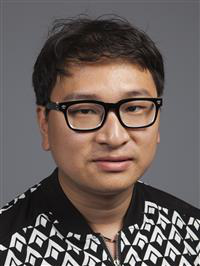Associate Professor Lei Zhang

Associate Professor Lei Zhang
School of Chemical Engineering, Dalian University of Technology, China
Title: ProCAPD - A Smart Tool for Computer-Aided Chemical Product Design
Abstract:
In the new global economic situation, chemical products are important options to meet the increasing requirements of modern society. Therefore, chemical-based product design and development continues to be a key topic in chemical, pharmaceutical, food and related industries as interest in high value-added products, green chemistry and product-process sustainability is receiving increasing focus. However, most of the chemical-based products are still designed from empirical and knowledge-based trial and error methods even though different requirements need to be satisfied for design of different types of products. Considering the constraints of time, money and limited number of experiments that can be performed, optimal design of the product cannot be guaranteed. That is, promising product candidates may have been missed with this approach. Therefore, the development of general methods and tools to determine promising design alternatives satisfying different sets of product attributes for different product types that could serve as candidates for final selection through experiments is an option worth considering.
In this work, the latest version of a chemical product design software tool, called ProCAPD, is presented. ProCAPD is the one and only software that like the well-known process simulators, offer options for chemical product design, development and evaluation. ProCAPD helps to verify product design decisions and generates information that can be used to make design decisions. Like the contents of the process simulator, the product simulator needs a database of chemicals and properties, a library of models for properties as well as application process for products, numerical routines to solve mathematical problems as well as various calculation options related to product design templates. Also, like the process simulator, the product simulator comes with a user-interface to describe the problems and to obtain the simulation (analysis-evaluation) results. In order to make the chemical product simulator versatile and applicable for a wide range of problems, ProCAPD has undergone extensive improvements. It now includes a suite of databases (chemicals, solvents, aroma, color-agents and extension to ionic liquids, extended list of organic solvents, API, etc.); an extended library of property estimation toolbox (a new toolbox, ProCAPE, for estimation and analysis of molecular and mixture properties, product performance, blend compositions, environmental impact etc., has been developed); an extended design toolbox with multiple solution options for single molecule and mixture design using database search option, generate-test approach as well as mathematical optimization model (OptCAMD) based option; updated design templates for single molecules, blends, formulations, emulsions, devices (for example, design templates for ionic liquids, surfactants, surrogate fuels, emotions, amino acids, etc.); and model solution strategies (database search, generate-and-test, mathematical optimization algorithms). The presentation will highlight the software architecture, the implemented computer aided methods-tools, illustrate their scope-significance through a number of new chemical product design-evaluation applications. The application examples will confirm that realistic chemicals-based product designs can be generated and integrated with focused experiments such that product development time and costs can be significantly reduced.
Biography:
Lei Zhang is an Associate Professor of Process Systems Engineering in School of Chemical Engineering at Dalian University of Technology. His current research interests include the development of methods and tools for chemical product and process design integrated with information and computing technologies, machine learning model, computational chemistry and molecular simulation. He received BS and PhD degrees from Tsinghua University in China during 2005-2014. He was a visiting scholar in 2013 at Carnegie Mellon University. He was a Postdoctoral research fellow at Technical University of Denmark in 2015, and Postdoctoral research fellow at Hong Kong University of Science and Technology in 2016. Since 2017, he is an associate professor at Dalian University of Technology. He received the 2017 Best Paper Award of Journal Computers & Chemical Engineering.